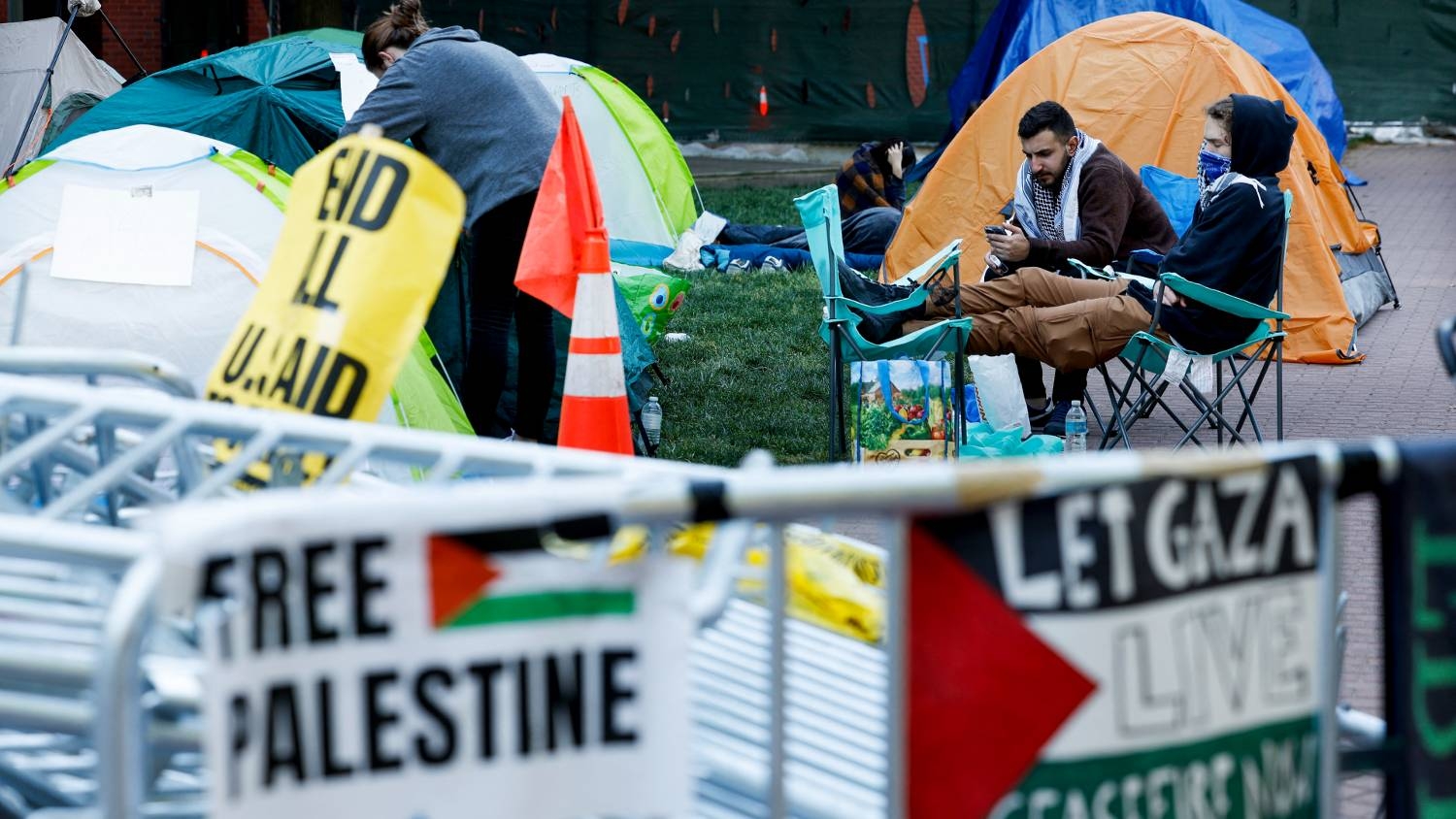Republicans introduce bill attacking Gaza solidarity encampments at US universities

A group of Republican lawmakers has introduced legislation that seeks to force US universities to fully disclose how they will manage Gaza solidarity encampments that have swept the nation's schools over the past several months.
If it passes, the legislation will change some language within the Higher Education Act of 1965 to mandate that universities receiving federal funds disclose the measures it takes to "respond to incidents of civil disturbance occurring on the campus".
The legislation, introduced by Elise Stefanik and Jim Banks, joins a chorus of other bills and attempts by Republicans in Congress to stifle pro-Palestinian activism on college campuses, which has spiked since Israel's war on Gaza began last October.
“This legislation would prevent the disgraceful mob riots we saw overtake campuses across the country including Columbia University and make sure school leaders are enforcing policies against hostile campus takeovers,” Stefanik said in a statement announcing the legislation.
The lawmakers have framed student encampments, which comprise Palestinian, Jewish, Muslim, and students of many other religions and identities, as being antisemitic for their criticisms of Israel.
New MEE newsletter: Jerusalem Dispatch
Sign up to get the latest insights and analysis on Israel-Palestine, alongside Turkey Unpacked and other MEE newsletters
Student encampments in solidarity with Palestine began earlier this year, with several tent sites set up at institutions including Columbia and Harvard University. Since then, the movement swept across universities throughout the country before making it to countries worldwide.
The movement has been seen as one of the largest mobilisations against war and the US military-industrial complex since the Vietnam War.
The main demands of the protesters have been for their universities to divest financial interests in companies that are profiting from Israel's war on Gaza, which has now been going on for nine months and has killed nearly 40,000 Palestinians.
In response to these protests, some universities, such as Columbia in New York and Emory in Georgia, have responded by ordering the police to sweep these encampments, leading to the violent arrests and injuries of student and faculty protesters.
For example, on 30 April, university administrators ordered police to conduct a sweep of the campuses of Columbia and City College of New York. Police arrested around 300 protesters, with police assaulting a number of demonstrators and blocking them from receiving medical assistance.
Since then, prosecutors in the city of New York dropped all charges against most of the students and activists, citing "prosecutorial discretion and lack of evidence".
Republicans have meanwhile attacked the leadership of several top universities for not doing enough to crack down on these protests.
In December, a congressional hearing was held by lawmakers in which the presidents of Harvard, the Massachusetts Institute of Technology, and the University of Pennsylvania were called in to testify about their responses to the student protest movement.
Republicans used this hearing to bash these presidents and accuse them of allowing antisemitism to be expressed on campus, referring to the pro-Palestine demonstrations.
Several days after the hearing, the president of the University of Pennsylvania, Liz Magill, resigned from her post. And the next month in January, Harvard president, Claudine Gay, also resigned.
Middle East Eye delivers independent and unrivalled coverage and analysis of the Middle East, North Africa and beyond. To learn more about republishing this content and the associated fees, please fill out this form. More about MEE can be found here.





